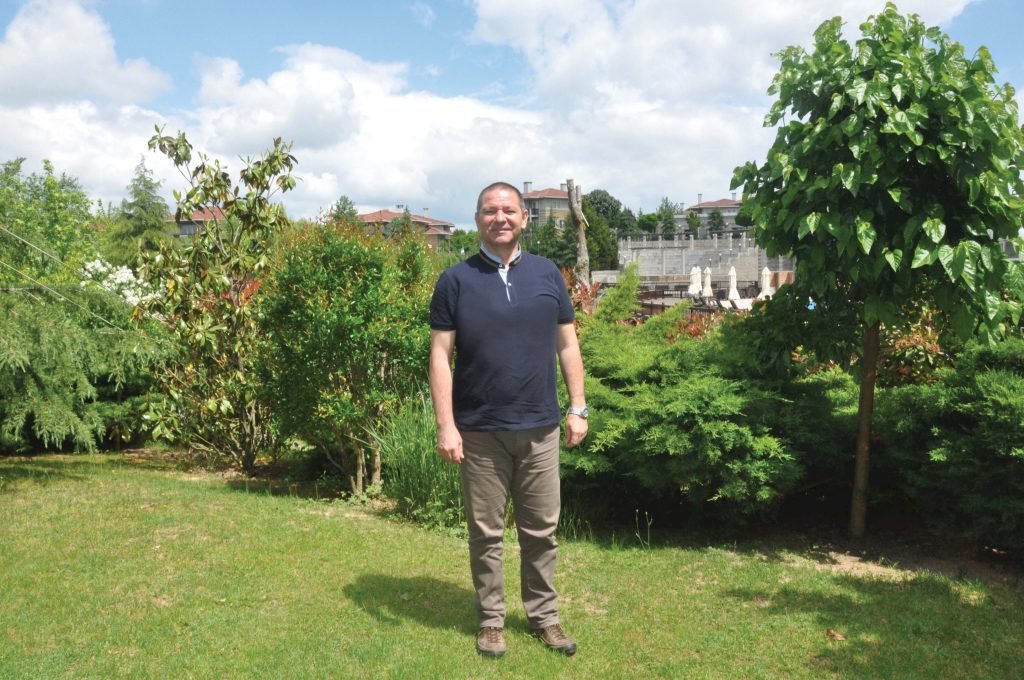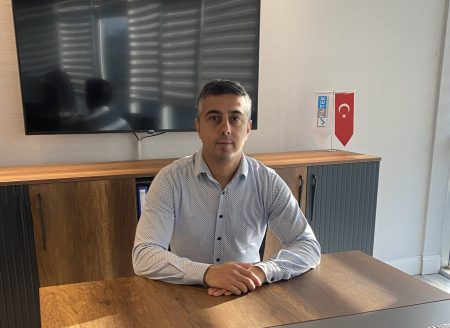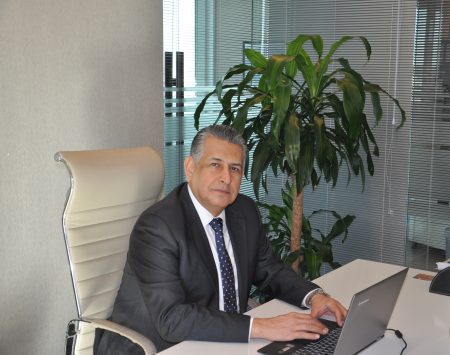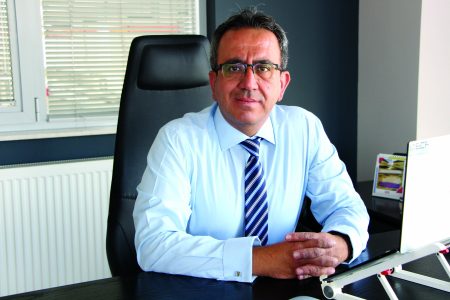Can we listen to Somer International’s founding story?
The story of our company begins with Ali Rıza Toduk’s departure from ÇİTOSAN. In the 1960s, he saw that the cement factories in Turkey had external dependency on the machine equipment and he established them by taking the representations of these companies. And at that time he started this journey with the respectable companies. He is making sure that the companies he represented are the leaders of their fields and the fact that they become solution partners instead of just selling products.
After graduating from ODTÜ Industrial Engineering Department in 1986, I joined the family business. We moved our company in Ankara to Istanbul after the death of Mr. Ali Rıza Toduk.
Could you talk about your representatives?
Vecoplan offers the most appropriate technology, product and system solutions to fulfill the customer’s needs in recycling and reprocessing of all kinds of waste products. In addition, turnkey solutions for alternative fuels (RDF) for the cement industry are being produced. It enables high quality alternative fuels to be used in high- temperature ovens.
Fives Pillard provides high performance combustion process solution and control systems to key markets such as cement, minerals and energy. The new generation of Novaflam rotary burners, which burn alternative fuels are successfully and frequently used in the industry.
Fives FCB is recognized as a leading, innovative solution provider in the cement and mineral markets at the highest level of performance, product quality, energy efficiency and emission controls. Fives FCB, specializes in the design, supply and installation of core process equipment and complete plants.
In 1976 Brokk produced the world’s first remote-controlled demolition / dismantling robots to address the challenges posed by hazardous work environments and hard-to- reach demolition fields. Brokk is used safely in the anzest and refractory dismantling of the rotary furnaces.
Bricking Solutions was established in 1967 to produce solutions for refractory maintenance used in rotary kilns. It produces very lightweight T6061 Aluminum, safety cages, ramps, bricklaying machines and hanger platforms developed for preheater and cyclone cleaning.
Cinar LTD offers solutions to problems related to combustion in industries that need intense amounts of energy, using CFD (Computational Fluid Dynamics) technique that they developed.
Standard Industrie, manufactures solutions to any bulk handling problem. AIRCHOC® declogging air cannons, LIFTUBE® conveyor belt optimization, GIRONET® silo and hopper cleaning, industrial vacuum cleaning equipment, belt cleaners (scrappers) are the well-known products.
TEMA produces fluid bed dryers for the mineral, chemical, food and biomass industries. These products are also successfully used for solid alternative fuels such as RDF (Refused Derived Fuel) and sludge.
Equipo is the solution partner for composting, bio drying, bio stabilization, drying of wastes using GORE cover systems, and aerobic waste treatment / special tilt Gore membrane drying technology.
HGH products KILNSCAN 23®: HGH produces infrared line scanner for rotary kiln shell temperature monitoring, lining and coating thickness evaluation, thermal warp calculation.
Which cement factory did you make the first plant for?
While talking about how to evaluate wastes as alternative fuel in Turkey, we are pioneering a position brought by Akçansa leadership and we are executing the first plant in 2007 at Akçansa Büyükçekmece factory. Afterwards, it continues with Bursa Cement, Çimsa Eskişehir, Çimentaş İzmir, Akçansa Çanakkale, OYAK Bolu, OYAK Adana (With RDF Contamination) and finally OYAK Ünye factories. The use of municipal waste as an alternative fuel in the OYAK Ünye factory is an important issue. Because there is no industrial waste in Ünye, the waste should be utilized. We will get a good result with the experience of Mr. Yıldıray YILDIZ who built this project from the ground up, and this facility will be a good indicant for the sector.
When we look at the distribution in Turkey, the factories in places such as; Marmaris Region and Aegean Region where the industrial waste is more intense, are lucky. In the East, it was even harder to find large industrial wastes that would make these investments attractive; until municipal wastes become operational. If the municipalities are willing to do this, this investment can be made. These investments require a good preparation process. In this regard, Vecoplan is the leader of the World and at the end of the 60’s they have entered this business, even though it is one of the oldest companies in terms of waste, we think that the learning process continues evenfor them. Because waste does not behave like the material that cement producer/sellers know; everyone knows very well the behavior of the coal and the clinker. But not in waste, because waste is not homogeneous. The behavior of a material coming from a particular industry may be different. Therefore, Turkey is at the beginning of the learning process. In Germany, these rates exceeded 60%, reaching 70%. In Turkey, with the latest investments you can only get about 5%.
Is the preliminary process not important? How is this process progressing?
It is necessary to study the inventory of the amount of waste resources and whether or not it will have continuity as of the region where the cement factory is located. The distances of the location of these resources, their transfer to the factory, and their qualities are evaluated. In order not to cause any fault, we work by exchanging ideas with factory officials who will make this investment, starting from the beginning of the process.
In recent years, seminars are being organized on these topics…. Do you have any seminars that you regularly give?
As Somer International we organize the Cement Days seminar every 3-4 years, with the participation of top-level managers in the sector and with our parent companies.
Do not the waste managers, have more knowledge on this issue?
Now everyone knows what’s in the area and what’s not, they have done some feasibility studies. They are investigating what they need to be careful about, when investing, they are asking about more technical issues. Because rising fossil fuel, coal and oil prices make these investments a little more compulsory and these investments bring serious savings. In the cement sector you can now compete by reducing your costs.
Would you give us information about your market share in Turkey?
With Vecoplan in alternative fuel projects in the cement sector, we reach 50% of market share with Pellard’s last generation Novaflam and Rotaflam in rotary kilns. Brokk remote control robots are used in almost all cement factories and their numbers are over 30. Bricking Solutions safety cages are becoming increasingly popular with the increased emphasis on occupational health and safety. We could not concentrate on the iron and steel sector because of our emphasis on the cement sector. We have started working intensively in the last 2-3 years in order to establish a place in the sector. New friends started to get involved while we were putting together our new staff.
Are you providing technical service?
We started to provide technical service to Brokk last year. In addition, all of the companies we represent are sending technical staff to the field if they need to.






